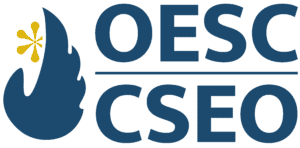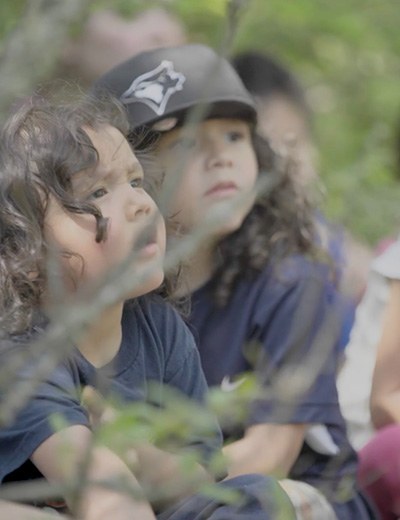INTRODUCTION
In Module 2 – Effective Governance for Student Achievement and Well-Being, trustees learn that elected school boards make a deep and direct contribution to the improvement of learning for all students. They do this by building public understanding and strengthening the commitment of their communities to valuing and sustaining high levels of student achievement and well-being. Authentic student achievement is a combination of academic, social, emotional, cultural and spiritual wellness. The public education system is founded on principles of universal access to education opportunities for all students regardless of their ethnic, racial or cultural backgrounds, social or economic status, individual exceptionality, or religious preference. Its unique mandate is to celebrate and reflect the diversity inherent in our society and to welcome all students. In publicly funded schools, student achievement occurs in a context of acknowledgement of, and celebration for, the diversity of belief, values, faiths, and language for all students it serves. At the same time, it provides the understanding and basic skills required for active, compassionate participation in the life of the family, the community, the province, the nation, and a global society.
This module provides trustees with context and information they need to ensure they can lead their boards in shaping positive school climates, where students and staff have a deep respect for Indigenous peoples and their histories, and in which First Nations, Inuit, and Métis students find their cultures reflected and respected. Most importantly, this information will help trustees work through their boards to ensure that students experience both well-being and academic success in their schools.
The four Ontario school board/trustee associations believe there is a practical and moral obligation to equip trustees and school boards with an accurate knowledge of First Nations, Inuit, and Métis histories. As well, they must have the insight and support strategies to help build school communities where the relationship between Indigenous and non-Indigenous Ontarians is founded on mutual respect and understanding. The 4Rs framework provides important guidance for such cross-cultural dialogue.
The challenges facing First Nations, Inuit, and Métis students, families, and communities have long and complex roots. They have been shaped by the impact of history, legislation, and government policies. The legacy of colonialism is evident in the experiences of the diverse Indigenous populations in schools as they continue to graduate at a rate that is 20% lower than that of non-Indigenous students. It is also evident in the reality of First Nations students going missing or dying when they leave their reserves to attend school, as well as in the disproportionate rate of suicide among Indigenous youth that is many times higher than non-Indigenous youth.
Recent years have brought about grounds for hope. In 2008, the Canadian government issued an apology on behalf of all Canadians for the Indian Residential Schools system, recognizing that “two primary objectives of the Residential Schools system were to remove and isolate children from the influence of their homes, families, traditions and cultures, and to assimilate them into the dominant culture. These objectives assumed that Aboriginal cultures and spiritual beliefs were inferior and unequal. Indeed, some sought, as it was infamously said, ‘to kill the Indian in the child.’ Today, we recognize that this policy of assimilation was wrong, has caused great harm, and has no place in our country.” Following this, the government established a Truth and Reconciliation Commission to chart a path forward.
In 2015, the final report of the Truth and Reconciliation Commission (TRC) was issued. The report’s Calls to Action represented the TRC’s blueprint for Canadians to work together to build a better future for Indigenous peoples. Two calls, in particular, focused on education – 62 and 63. The Ontario government has committed to implementing these Calls to Action, with several ongoing initiatives within the Ministry of Education currently underway:
- The ministry has directed school boards to establish Indigenous Education Councils or advisory committees to guide school boards in building relationships with Indigenous communities ensuring their participation in the development of the Board Action Plan on Indigenous Education aimed at to improving student achievement and well-being.
- The ministry has funded a full time Indigenous Education Lead for each board. Their role is to implement the Board Action Plan and other board work to support the success and well-being of First Nations, Inuit, and Métis students.
- The Ministry has also worked to revise the curriculum to reflect learning opportunities about First Nations, Inuit, and Métis histories, cultures, contributions and perspectives.
- The first week of November has been designated as Treaties Recognition Week to promote education about treaties and treaty relationships with First Nations. Resources have also been developed to support the learning.
In turn, Ontario’s publicly funded school boards, school trustees, schools, teachers, and communities have taken action to improve educational experiences and outcomes for Indigenous students. Some progress has been made; more efforts are required.
VIDEO ONE – TRUTH: AN INTRODUCTION
Learning the true history of Canada’s relationship with Indigenous peoples is necessary preparation for reconciliation. The stories you will hear shine a light on the dark corners of our collective history, including residential schools, language loss, and devastating human injustice. These stories are part of the wider narrative. Those who generously gave of themselves speak of their own experiences. They hoped that their experiences and reflections would inspire the work ahead – with you as individual trustees, and through you, with Ontario’s school boards.
You will hear about the horrific effects of residential schools through survivors and their children. And through several expert contributions, you will learn about pieces of Indigenous histories from pre-contact to present time. The video offers a glimpse of an enormous landscape. It is an unflinching look at the issues that still challenge us today, as told by the people impacted who share their stories with compassion and great dignity.
We encourage you to learn as much as you can and to take a closer look at the aspects that interest you most. There remains much learning to do – trustees need to continue their learning and be open to what they hear.
VIDEO TWO – RECONCILIATION: AN INTRODUCTION
Truth: An Introduction closes with a powerful challenge: “Now that you know, what are you going to do about it?”
Video Two, Reconciliation: An Introduction focuses on the hopeful steps that school boards and schools are taking toward reconciliation. You will see examples of schools recognizing Indigenous cultures, supporting Indigenous students to succeed, and engaging their communities in the reconciliation process. This video shows you, as trustees, some examples of schools and school boards working together with their communities to explore and bring forward Indigenous histories, cultures and issues creatively and collaboratively.
CONCLUSION
Many Ontario school boards have developed specific local programs responding to the needs of Indigenous students within their communities The Ministry of Education has supported the Indigenous Graduation Program as well as Alternative Secondary School Programs that partner with Indigenous Friendship Centres and focus on Indigenous ways of knowing, land-based learning, access to knowledge keepers, and community connections with well-being at the centre of the learning.
There has been much learning in the education system to advance Indigenous Education. Ontario teachers have been provided with more opportunities for professional development to build their understandings. Many school boards have increased the number of secondary school students taking Indigenous Studies courses, with some mandating that all students take the Grade 11 Indigenous Studies English course. This ensures that all secondary students in these boards can build their knowledge. Ontario elementary and secondary students have also been exposed to activities and have learned from local knowledgeable members and leaders of First Nations, Inuit, and Métis communities through engaging in activities to promote understanding. But more must be done to bring us closer to fulfilling the education-related Calls to Action.
Data collection to measure progress needs to be more thoroughly considered. Despite voluntary self-identification policies having been developed within boards, the progress to gain meaningful data has not been substantive. Without data, as recommended by the Truth and Reconciliation Commission, it is difficult to determine if gains are being made. School boards have a responsibility to support and promote anti-racism organizational change and data standards for monitoring systemic racism. For more, please see the following links:
- Anti-Racism Act, 2017, S.O. 2017, c. 15
- Ontario Reg. 267/18: GENERAL
- Supporting Anti-Racism Organizational Change to Better Serve all Ontarians: Standards and Guidance
In addition, while several curricula revisions to include First Nations, Inuit, and Métis perspectives have occurred, more needs to be done in this area.
Due to harmful colonial legislation, Indigenous languages are at a critical state. Urgent action is required to ensure survival in the next generation. Indigenous cultures, ways of being, and worldviews are embedded in each language. Canada, Ontario, and the Ministry of Education have pledged their commitment to Truth and Reconciliation and provided resources to support Indigenous language revitalization. However, innovative approaches to revitalizing these languages are urgently needed. Hiring and retaining Indigenous Language teachers must be a priority. An alternative process that facilitates certification of Indigenous language teachers should be considered, along with an opportunity for boards to be permitted to develop innovative, localized approaches to language revitalization.
Since 2007, policies and programs have aimed at improving the achievement of First Nations, Inuit, and Métis students and closing the gap between Indigenous and non-Indigenous students. Much has occurred to support both Indigenous and non-Indigenous students in their learnings and understandings about First Nations, Inuit, and Métis histories, cultures and perspectives. Some of these successes are noted in the progress reports provided by the Ministry of Education, such as Strengthening Our Learning Journey (2018). However, it is important to also reflect on the challenges that remain in the areas of supporting students, engagement, and awareness, supporting educators, and using data to support achievement. Community consultation and collaboration are essential to this continued work and such engagement should occur regularly, consider local context, and be respectful of unique communities with the goal of improving the achievement and well-being of First Nations, Inuit, and Métis students.
Boards have a duty to consult Indigenous communities, as the United Nations Declaration on the Rights of Indigenous Peoples (UNDRIP) guarantees they have legal recognition and protection of their lands, territories and resources. Such recognition includes the right to practice and revitalize their cultural traditions and customs.
Indigenous peoples are also one of the fastest growing populations in Canada. Between 2006 and 2021, Ontario’s Indigenous population grew 68%, compared to an 11% growth rate for the rest of the population. Indigenous peoples now make up 2.9% of the population. In addition, the Indigenous populations are also younger than the non-Indigenous population.
While there have been many initiatives to support Indigenous education, as leaders in the education system, trustees and senior staff need to ensure all First Nations, Inuit, and Métis students have the support they need to be successful and that they are educated in inclusive, welcoming, and safe environments.

